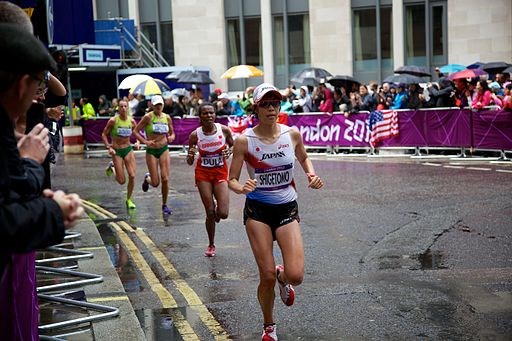Report: Olympic inclusion lacks on women representation

The 2012 London Olympics has been called “Year of the Woman.” A new report shows poor representation of women in olympic leadership roles. Photo by Aurelien Guichard/Flickr
15.04.2013
The report “Women in the Olympic and Paralympic Games: An Analysis of Participation and Leadership Opportunities” has been elaborated in a collaboration between the Sport, Health, and Activity Research and Policy (SHARP) Center for Women and Girls, Women’s Sports Foundation (WSF) and the University of Michigan and gives an insight into the representation of women in leadership roles and sports participation in the international Olympic and Paralympic organisations.
“The SHARP Center findings demonstrate both the successes and shortfalls of the IOC’s gender equity thresholds,” said Women’s Sports Foundation CEO, Kathryn Olson in the press release accompanying the report.
“We are far from the 50/50 split in balanced leadership which embodies the inclusive spirit of the Olympic and Paralympic movement. There are abundant returns that come to women who serve in a leadership capacity in sport and they are an integral part of the team, actively advocating for women as athletes,” Olson said.
The new report shows that even though there has been progress in terms of getting a more equal representation of women in both leadership positions and in participation in the Games since 2008, there is still some way to go before gender equality can be said to exist.
Key findings in the report include:
- 85 percent of National Olympic Committees have all-male leadership teams. Only six of the 28 International Federaions have exceeded the 20 percent threshold.
- Women still have not exceeded 45 percent of the total participants in the Olympic Games and 36 percent in the Paralympic Games
- In both the Olympic and Paralympic Games, delegations from wealthy nations were more gender equitable than those of less financed nations.
The report also offers a line of recommendations for the international and national Olympic federations to follow if they want to achieve a stronger line in regards to gender equality in leadership and participation.
The recommendations include:
- Enforce accountability for meeting gender equity thresholds: Noncompliance should be considered in evaluating which sports are added or removed from the Olympic program, which countries are eligible for IOC office, which countries are considered as a potential host city for the Olympic Games, among others.
- Raise gender equity standards: Increase the 20 percent and 30 percent gender equity goals for women in leadership roles and set 50 percent equity goals for participation by the 2016 Games.
- Increase Olympic Solidarity scholarships to female athletes to at least 50 percent. Institute clear and evidence-based reporting requirements with regard to current patterns and improvements toward representation of women leaders within the IOC, IPC, NGBs and NOCs.
Read more about the report and download it here
SOURCE: www.womenssportsfoundation.org





